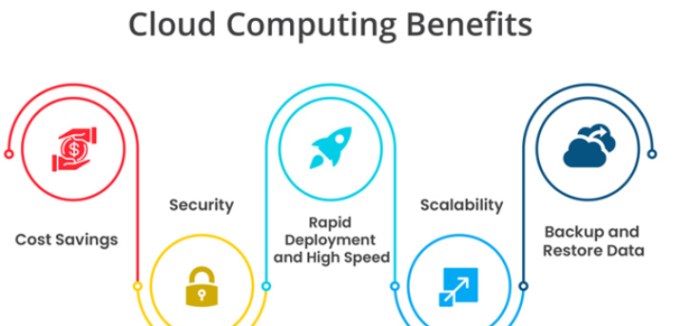Introduction
Cloud computing has transformed the way businesses operate, enabling them to leverage scalable resources and innovative technologies. As organizations increasingly migrate to the cloud, understanding cloud computing solutions becomes essential for optimizing operations and enhancing flexibility. This article explores what cloud computing solutions are, their benefits, and current trends in the market.
What Are Cloud Computing Solutions?
Cloud computing solutions refer to services that provide computing resources over the internet, allowing businesses to access and manage data, applications, and storage without the need for extensive on-premises infrastructure. These solutions are typically offered through various models, including Infrastructure as a Service (IaaS), Platform as a Service (PaaS), and Software as a Service (SaaS).
Key Features of Cloud Computing Solutions:
- Scalability: Easily scale resources up or down based on demand, ensuring optimal performance and cost-effectiveness.
- Accessibility: Access data and applications from anywhere with an internet connection, facilitating remote work and collaboration.
- Cost Efficiency: Reduce capital expenditures by minimizing the need for physical hardware and maintenance.
- Security: Benefit from advanced security measures and compliance protocols offered by cloud service providers.
Benefits of Cloud Computing Solutions
- Enhanced Collaboration
- Cloud computing solutions enable teams to collaborate in real-time, sharing documents and applications seamlessly, regardless of their location. This fosters a more connected and productive workforce.
- Improved Flexibility
- With cloud solutions, businesses can adapt quickly to changing market conditions. Organizations can deploy new applications or scale resources in response to fluctuating demands.
- Automatic Updates
- Cloud service providers often handle software updates and maintenance, ensuring that businesses always have access to the latest features and security enhancements without disruption.
- Disaster Recovery
- Cloud computing solutions typically include robust backup and recovery options, ensuring data protection and continuity in case of unexpected incidents.
- Data Insights
- Advanced analytics tools available in cloud solutions allow organizations to harness data for better decision-making and strategic planning.
Current Trends in Cloud Computing Solutions
- Multi-Cloud Strategies
- Many organizations are adopting multi-cloud approaches, leveraging services from multiple providers to enhance flexibility, reduce vendor lock-in, and improve resilience.
- Edge Computing
- As IoT devices proliferate, edge computing is becoming increasingly relevant. This trend involves processing data closer to its source, reducing latency and improving performance.
- AI and Machine Learning Integration
- Cloud providers are integrating AI and machine learning capabilities into their solutions, enabling businesses to automate processes, enhance customer experiences, and gain insights from data.
- Security Enhancements
- With growing concerns about data breaches and cyber threats, cloud providers are investing in advanced security measures, including encryption, identity management, and compliance tools.
- Sustainability Initiatives
- Cloud computing solutions are increasingly focused on sustainability, with providers implementing eco-friendly practices and energy-efficient technologies to reduce their environmental impact.
Conclusion
Cloud computing solutions are revolutionizing the way businesses operate, offering flexibility, scalability, and enhanced collaboration. By understanding the benefits and staying informed about current trends, organizations can effectively leverage cloud technology to optimize their operations.
Call to Action
For the latest updates on cloud computing solutions and insights into how they can transform your business, subscribe to our newsletter and join our community of tech-savvy professionals!




